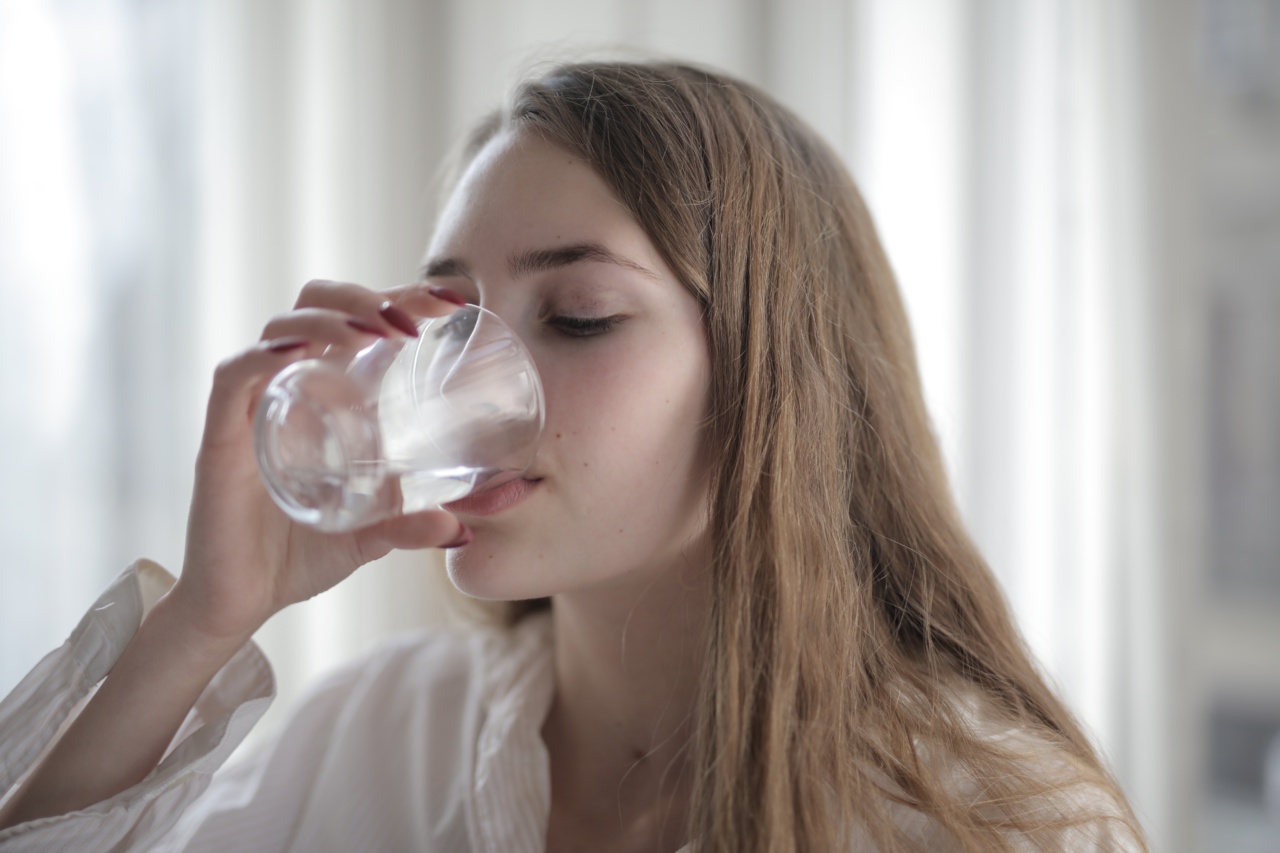Water is essential for our overall health and well-being. It plays a crucial role in various bodily functions, including digestion, absorption, circulation, and temperature regulation.
Staying hydrated is especially important during hot weather or when engaging in physical activity, as our bodies lose water through sweat.
Why is Hydration Important?
Proper hydration is vital for maintaining the balance of fluids in your body. Water helps transport nutrients to your cells, flush out waste products, and lubricate your joints and tissues.
It also aids in regulating body temperature and supports healthy digestion.
Dehydration, on the other hand, can cause a range of negative health effects. Mild to moderate dehydration can lead to symptoms such as fatigue, dizziness, dry mouth, dry skin, and headaches.
Severe dehydration can even result in life-threatening conditions such as heatstroke.
Here are some of the key reasons why staying hydrated is essential:.
1. Energy Levels and Brain Function
Dehydration can significantly impact your energy levels and cognitive function. Studies have shown that even mild dehydration can lead to decreased energy, mood swings, difficulty concentrating, and reduced alertness.
When you’re properly hydrated, your blood volume stays within a healthy range, allowing oxygen and essential nutrients to be efficiently transported throughout your body.
This, in turn, keeps your brain functioning optimally and helps you stay focused and alert.
2. Physical Performance
Hydration plays a critical role in physical performance. During exercise or any strenuous physical activity, your body loses water through sweat, increasing the risk of dehydration.
Even mild dehydration can negatively impact your athletic performance, leading to reduced endurance, decreased strength, and compromised coordination.
It’s essential to drink enough water before, during, and after exercise to prevent dehydration and maintain optimal performance.
Thirst is not always an accurate indicator of your body’s water needs, so it’s crucial to make a conscious effort to stay hydrated.
3. Digestion and Nutrient Absorption
Water is a key component of the digestive process. It helps break down food, dissolve nutrients, and move waste through your digestive system. Staying adequately hydrated improves your body’s ability to absorb nutrients from food.
Insufficient water intake can lead to digestive issues such as constipation and bloating. By drinking enough water, you can support regular bowel movements and avoid discomfort associated with poor digestion.
4. Joint and Muscle Health
Water is essential for maintaining healthy joints and muscles. Adequate hydration helps cushion and lubricate your joints, reducing the risk of joint pain and arthritis.
It also plays a crucial role in muscle function, assisting with muscle contractions and preventing cramps.
When you’re dehydrated, your muscles may tire more quickly, leading to decreased athletic performance and increased risk of injury. By drinking enough water, you can help keep your muscles and joints healthy and functioning optimally.
5. Skin Health
Your skin is the largest organ in your body and requires proper hydration to maintain its elasticity and overall health. When you’re dehydrated, your skin may appear dry, tight, and less plump.
Drinking enough water helps flush out toxins from your body, leading to clearer and more radiant skin. It also ensures that your skin stays moisturized, reducing the risk of dryness, itchiness, and premature aging.
How to Check If You’re Drinking Enough Water
Now that we understand the importance of hydration, it’s essential to know how to check if you’re drinking enough water.
While the daily recommended intake of water varies based on factors such as age, sex, activity level, and climate, there are several indicators to assess your hydration status.
1. Monitor Your Urine Color
One of the simplest ways to determine if you’re adequately hydrated is to monitor the color of your urine. Ideally, your urine should be pale yellow or straw-colored. If your urine is dark yellow or amber, it may be an indication of dehydration.
Increased fluid intake should help lighten the color of your urine.
2. Check Your Urine Frequency
The frequency of your bathroom trips can also provide insight into your hydration level. On average, most people urinate 6-7 times a day.
If you find yourself urinating less frequently or your urine output is significantly reduced, it might be a sign that you need to increase your water intake.
3. Assess Your Thirst
While thirst is not always an accurate indicator of your body’s hydration needs, it can still be a helpful cue. If you’re frequently feeling thirsty, it may suggest that you need to drink more water.
However, keep in mind that thirst is not always an immediate response to dehydration, so it’s essential to maintain a consistent and adequate water intake throughout the day.
4. Consider Your Activity Level and Environment
Physical activity and environmental conditions can affect your body’s water requirements.
If you’re engaging in physical exercise, spending time in hot weather, or experiencing excessive sweating due to other factors, it’s crucial to increase your fluid intake accordingly. Listen to your body and ensure you’re replenishing the water you lose through sweat.
5. Weigh Yourself
Another way to gauge your hydration status is by monitoring your body weight. Weigh yourself before and after exercise or any activity that may cause significant sweating.
For every pound lost, drink about 16-24 ounces of water to replenish the fluid deficit.
Developing Healthy Hydration Habits
Now that you know the importance of hydration and how to assess your water intake, it’s time to develop healthy hydration habits:.
1. Carry a Water Bottle
Having a reusable water bottle with you wherever you go serves as a constant reminder to drink water throughout the day. Choose a bottle with a size you’re comfortable carrying, and make it a habit to refill it whenever it’s empty.
2. Set Reminders
In our busy lives, it’s easy to forget to prioritize hydration. Set reminders on your phone or use various apps designed to remind you to drink water at regular intervals.
These gentle reminders can help you stay on track with your water intake goals.
3. Infuse Your Water
If you find plain water boring, consider infusing it with fresh fruits, herbs, or citrus slices. Infused water can add a burst of flavor and encourage you to drink more water throughout the day.
4. Eat Hydrating Foods
Remember that your water intake doesn’t solely come from beverages. Many fruits and vegetables have high water content, contributing to your overall hydration.
Incorporate hydrating foods like watermelon, cucumbers, strawberries, and lettuce into your meals and snacks.
5. Be Mindful of Dehydrating Beverages
While increasing your water intake, be mindful of beverages that can dehydrate you. Drinks like coffee, tea, alcohol, and sugary sodas can have a diuretic effect, causing increased water loss through urine.
Be sure to balance your fluid intake by incorporating additional water for each dehydrating beverage you consume.
Conclusion
Staying properly hydrated is essential for your overall health and well-being. Water plays a crucial role in various bodily functions, and dehydration can lead to a range of negative health effects.
By monitoring your urine color, frequency, and paying attention to your body’s signals, you can assess your hydration level. Developing healthy hydration habits, such as carrying a water bottle, setting reminders, and incorporating hydrating foods, is key to ensuring you’re drinking enough water.































